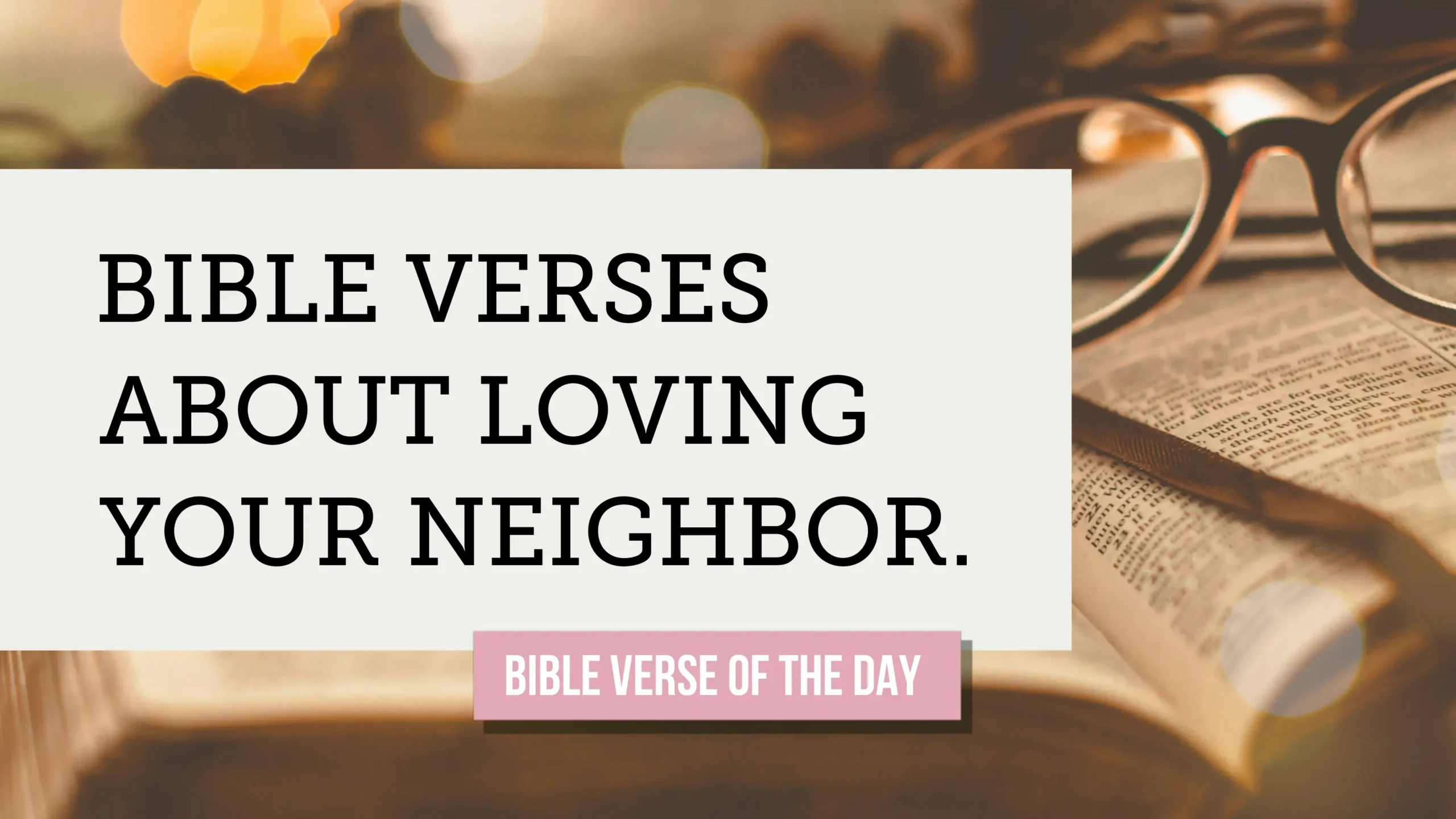Living in a fractured world where division seems easier than connection, you might wonder what genuine love for others actually looks like. Perhaps you’ve been hurt by neighbors, struggled to forgive someone close to you, or simply felt overwhelmed by the command to love when your own heart feels empty. God’s Word offers profound guidance on loving your neighbor—not as a burdensome obligation, but as a pathway to experiencing His heart for community. These Bible verses about loving your neighbor reveal both the depth of this calling and the divine strength available to live it out, even when love feels impossible.
What Does “Love Your Neighbor” Really Mean?
The command to love your neighbor appears throughout Scripture, but its meaning goes far deeper than casual kindness or surface-level politeness. When Jesus spoke these words, He was calling us into a radical way of living that reflects God’s own heart.
“Love your neighbor as yourself” (Matthew 22:39) establishes the golden standard—the same care, patience, and grace you extend to yourself should flow toward others. This isn’t about perfection; it’s about intentionality. You’re called to actively seek the good of those around you, just as you naturally protect your own wellbeing.
The Greek word “agape” used here describes unconditional, sacrificial love. It’s not based on feelings or reciprocity, but on a deliberate choice to value others as image-bearers of God. This love sees beyond surface differences, past wounds, and present failures to recognize the inherent worth of every person.
Your neighbor isn’t just the person next door. In Luke 10:29-37, Jesus expands this definition through the parable of the Good Samaritan, showing that your “neighbor” includes anyone whose path crosses yours—especially those in need, those different from you, and even those who might typically be considered enemies.
Bible Verses About Loving Difficult Neighbors
Real love gets tested when relationships become complicated. Scripture acknowledges this reality and provides wisdom for loving even when it’s hardest.
“But I tell you, love your enemies and pray for those who persecute you” (Matthew 5:44). Jesus doesn’t minimize the challenge of difficult relationships. Instead, He offers a supernatural solution: prayer. When you can’t muster love for someone, you can always pray for them. This practice softens your heart and invites God’s perspective into the situation.
“Be kind and compassionate to one another, forgiving each other, just as in Christ God forgave you” (Ephesians 4:32). Kindness and compassion aren’t feelings you wait to experience—they’re choices you make despite your feelings. God’s forgiveness toward you becomes the wellspring from which you can extend grace to others.
“Above all, love each other deeply, because love covers over a multitude of sins” (1 Peter 4:8). Love doesn’t ignore wrongdoing, but it chooses to focus on redemption rather than condemnation. When neighbors disappoint or hurt you, love creates space for growth and restoration rather than writing them off.
Sometimes the most difficult neighbor to love is yourself. “Love your neighbor as yourself” assumes healthy self-love—recognizing your own worth as God’s beloved child. You can’t pour from an empty cup. Caring for your own spiritual, emotional, and physical needs isn’t selfish; it’s necessary for sustainable love toward others.
Scriptures for Serving Your Community
Love for your neighbor naturally expresses itself through service. These verses illuminate how caring for others’ practical needs becomes an act of worship.
“Each of you should use whatever gift you have to serve others, as faithful stewards of God’s grace in its various forms” (1 Peter 4:10). Your unique abilities, resources, and experiences aren’t random—they’re tools for blessing others. Whether you’re gifted in hospitality, possess practical skills, or simply have time to listen, God can use what you offer.
“Carry each other’s burdens, and in this way you will fulfill the law of Christ” (Galatians 6:2). Loving your neighbor means paying attention to what weighs them down. Sometimes this looks like providing a meal during illness, offering childcare during crisis, or simply being present during grief. You’re called to enter into others’ struggles, not solve them all.
“Do not forget to show hospitality to strangers, for by so doing some people have shown hospitality to angels without knowing it” (Hebrews 13:2). Hospitality extends beyond your immediate circle to welcome those who are different, new, or marginalized. Opening your heart and home to strangers reflects God’s own welcome toward you.
“Religion that God our Father accepts as pure and faultless is this: to look after orphans and widows in their distress and to keep oneself from being polluted by the world” (James 1:27). True spirituality always moves toward the vulnerable. Your love for God is measured not by how well you perform religious activities, but by how well you care for those society overlooks.
Bible Verses About Unity and Peace With Others
Living in harmony with others requires intentionality, wisdom, and divine grace. These scriptures guide you toward peace-making rather than peace-keeping.
“Make every effort to keep the unity of the Spirit through the bond of peace” (Ephesians 4:3). Unity doesn’t mean uniformity—you don’t have to agree on everything to love well. But it does require effort. Peace-making involves listening carefully, speaking truthfully in love, and choosing grace over being right.
“If it is possible, as far as it depends on you, live at peace with everyone” (Romans 12:18). Paul acknowledges that peace isn’t always achievable—some people aren’t ready or willing to reconcile. But you’re responsible for your part. You can control your responses, your words, and your heart attitude even when others choose conflict.
“How good and pleasant it is when God’s people live together in unity!” (Psalm 133:1). God delights in harmony among His children. When neighbors experience genuine unity, it creates a powerful testimony to watching world about God’s transforming love.
“Be completely humble and gentle; be patient, bearing with one another in love” (Ephesians 4:2). Patience with others’ flaws, gentleness in correction, and humility about your own limitations create an atmosphere where love can flourish. These qualities don’t come naturally—they’re fruits of God’s Spirit working in your life.
How to Love When Your Heart Feels Empty
Sometimes you know you should love your neighbors but feel emotionally depleted, spiritually dry, or simply overwhelmed by your own circumstances. God understands these seasons and provides resources for loving from His strength rather than your own.
“We love because he first loved us” (1 John 4:19). Your ability to love doesn’t originate from your own goodness or strength—it flows from your experience of God’s love. When your love tank feels empty, return to the source. Spend time in His presence, remember His faithfulness, and let His love fill you again.
“I can do all this through him who gives me strength” (Philippians 4:13). This includes loving difficult neighbors, serving when you’re tired, and forgiving when you’ve been deeply hurt. Christ’s strength is available for every challenge, including the challenge of loving well.
“Come to me, all you who are weary and burdened, and I will give you rest” (Matthew 11:28). Jesus doesn’t expect you to manufacture love through willpower alone. When loving others feels burdensome, bring that burden to Him. His rest restores your capacity for love.
“But those who hope in the Lord will renew their strength. They will soar on wings like eagles; they will run and not grow weary, they will walk and not be faint” (Isaiah 40:31). Waiting on the Lord—through prayer, Scripture, and worship—renews your emotional and spiritual reserves. This isn’t passive waiting but active dependence on His resources.
Practical Ways Scripture Guides Neighbor Love
God’s Word doesn’t just command love—it shows you what love looks like in daily life. These verses provide practical wisdom for loving neighbors well.
“Do nothing out of selfish ambition or vain conceit. Rather, in humility value others above yourselves” (Philippians 2:3). This doesn’t mean becoming a doormat, but considering others’ needs alongside your own. It might look like letting someone merge in traffic, choosing a restaurant that accommodates everyone’s dietary needs, or listening without immediately offering advice.
“Therefore encourage one another and build each other up, just as in fact you are doing” (1 Thessalonians 5:11). Words have power to heal or harm. Choosing to speak encouragement, offer genuine compliments, and build others up creates an atmosphere where love thrives.
“Dear children, let us not love with words or speech but with actions and in truth” (1 John 3:18). Authentic love moves beyond good intentions to concrete actions. This might mean mowing an elderly neighbor’s lawn, bringing groceries to someone recovering from surgery, or offering practical help during moves or emergencies.
“Share with the Lord’s people who are in need. Practice hospitality” (Romans 12:13). Sharing resources and opening your home demonstrates love in tangible ways. This doesn’t require wealth—it requires willingness to share what you have.
The Eternal Impact of Loving Your Neighbor
Your love for neighbors creates ripple effects that extend far beyond immediate relationships. Scripture reveals the eternal significance of how you treat others.
“Truly I tell you, whatever you did for one of the least of these brothers and sisters of mine, you did for me” (Matthew 25:40). Every act of love toward another person is an act of worship toward Christ. Your service to neighbors has eternal value because you’re serving Jesus Himself through them.
“Let your light shine before others, that they may see your good deeds and glorify your Father in heaven” (Matthew 5:16). Your neighbor love becomes a powerful witness to God’s reality and goodness. People notice genuine care, and it points them toward the Source of that love.
“No one has ever seen God; but if we love one another, God lives in us and his love is made complete in us” (1 John 4:12). Through your love for neighbors, invisible God becomes visible. You’re His hands, feet, and heart in your community.
“And surely I am with you always, to the very end of the age” (Matthew 28:20). As you step out in love toward others, especially when it feels difficult or costly, Christ’s presence goes with you. You’re never loving alone—you’re partnering with Him in the work of redemption and restoration.
Prayer for Loving Your Neighbors Well
Heavenly Father, thank You for loving me when I was unlovely and undeserving. Help me extend that same unconditional love to my neighbors—both those who are easy to love and those who challenge me. When my heart feels hardened by disappointment or hurt, soften it with Your grace. When I feel too tired or overwhelmed to serve others, fill me with Your strength.
Show me practical ways to demonstrate love in my community. Open my eyes to needs around me that I might miss in my busy schedule. Give me courage to reach out to those who are different from me, lonely, or struggling. Help me love with actions, not just words, and to see You in every person whose life touches mine.
Make me a peace-maker in my neighborhood and family. When conflicts arise, help me respond with wisdom, grace, and truth. Let Your love flowing through me be a light that draws others to You. In Jesus’ name, Amen.



Leave a Reply